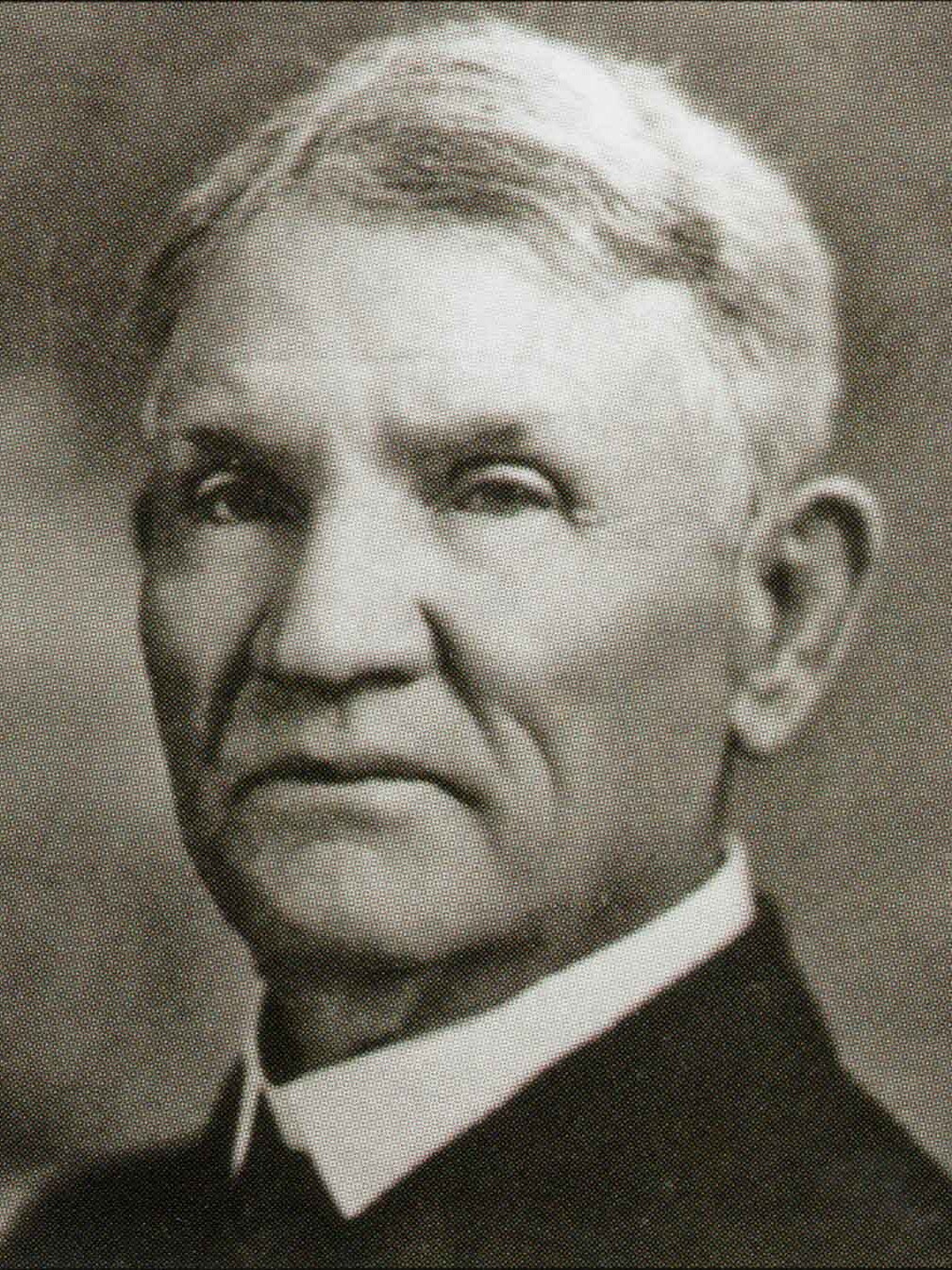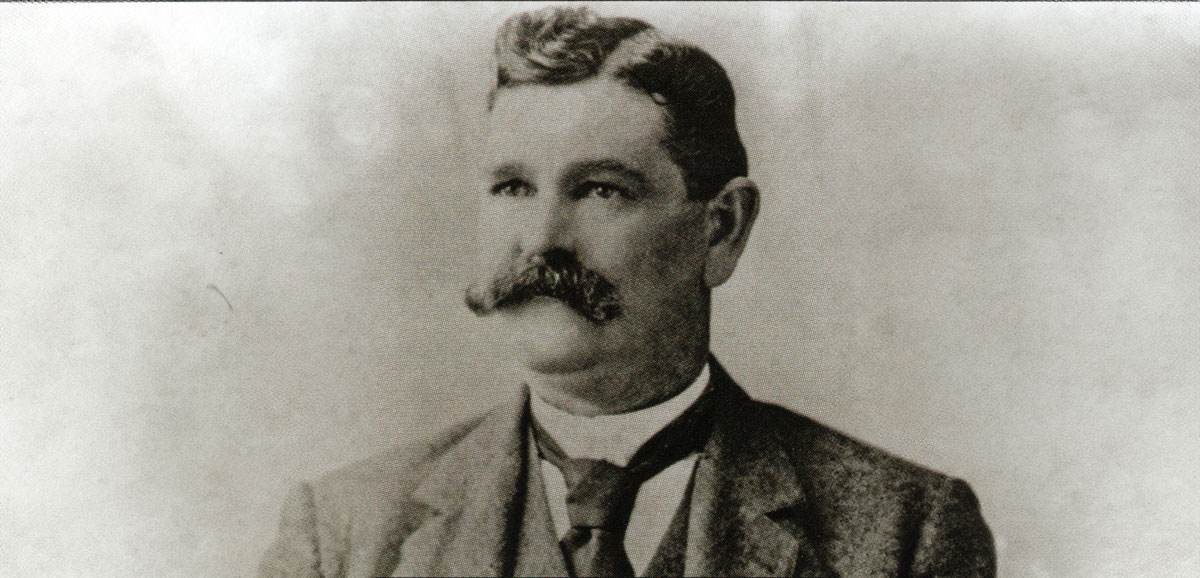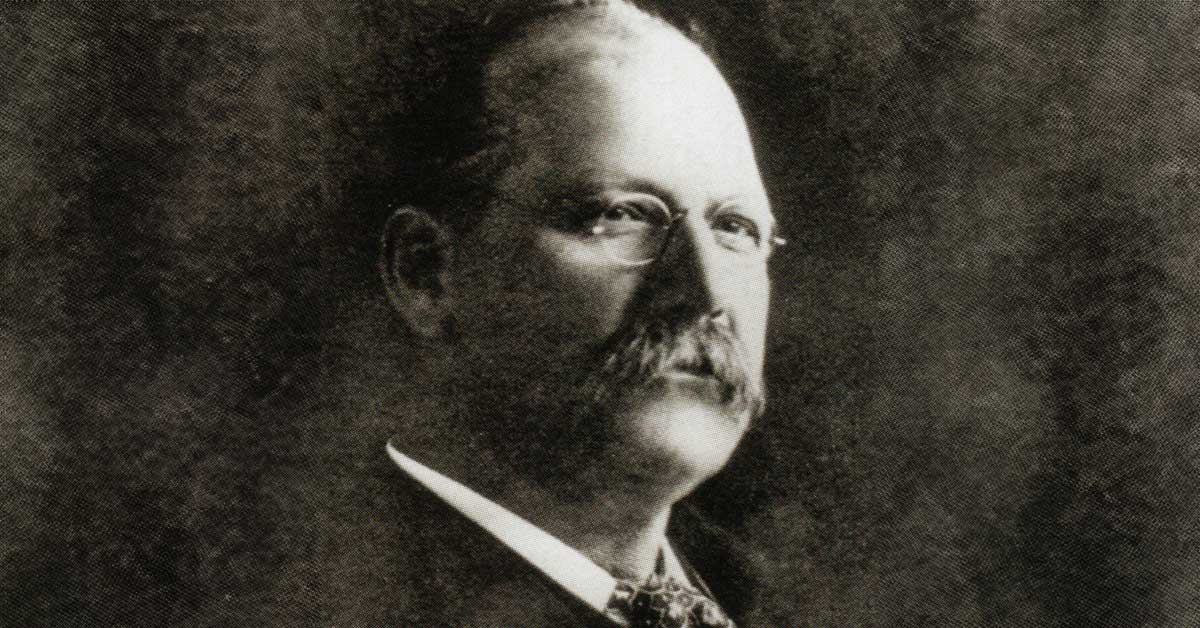Frank Sherman Jennings was born February 4, 1852, in Delaware, Ohio. In 1880 lived in Winfield, Kansas. He was a Kansas State Senator for District 22 in 1885-1887, and his law firm of Jennings & Troup was one of the top Kansas law firms in that area.
He moved to San Diego in 1887 and was an early land developer in Point Loma.
In 1895, he was elected Sheriff of San Diego County.
On November 11, 1897, Sheriff Jennings was directed to arrest the Acting Warden of San Quentin prison for the latter’s failure to pay a $200 contempt of court fine for failing to hang Joseph Ebanks on October 8th. Ebanks had been tracked down by Deputy Will J. Ward and was convicted of the murders of Mrs. Harriet Stiles and her father, John Borden. He was finally executed on May 28, 1898. The Union (May 28, 1898) reported that with “… Sheriff Frank S. Jennings and Deputy Sheriff Will J. Ward, Ebanks never denied his guilt. He feared those men as he feared nobody else, and was always uneasy in their presence, apparently feeling that they could read his thoughts.”
On October 24, 1899, during a trial of Ramon Tapia for the murder of Jacob Veitinger, Deputy Jennings testified how he had tracked the defendant from the murder location to the Sequan Indian reservation, following the peculiar round hoof tracks. “The defense endeavored to puzzle Mr. Jennings by producing a number of horse tracks in mud and plaster of paris, and asking Mr. Jennings to pick out the peculiar round track which he saw so frequently in the country.” However, Jennings was able to identify several of the tracks.
In November 1899, Deputy Will J. Ward was assaulted by burglar Bert Ross at a stop in San Luis Obispo while transporting the convict by boat to San Quentin. Sheriff Jennings went to San Luis Obispo and spent a week with Deputy Ward, who continued to decline, and finally succumbed to his injuries on November 27th, becoming the second Sheriff’s Deputy to die in the line of duty.
On December 7, 1901, there were 15 prisoners in the county jail. Sheriff Jennings was working with the Board of Supervisors to have the misdemeanor prisoners assigned to road gangs. The first planned work is on the grade of the Poway road “in the vicinity of the county hospital.” Misdemeanor prisoners “… include not only hobos but all prisoners who are sent to the county jail to serve sentences.” Sheriff Jennings thought this approach might “… reduce the number of hobos.”
In 1906, he was a Director of Security Savings Bank and Trust Company in San Diego, where George Marston was vice-president.
Frank Jennings died March 22, 1935, at his home in Point Loma, 1036 Bayfront St. His son, Paul R Jennings, was vice-president of the San Diego branch of the Bank of America at the time of his death. In addition to Paul Jennings, Frank Jennings was survived by his wife Inez Elva Daniel, and another son, Robert Pratt Jennings. He also had two daughters, Nellie Crippen Jennings and Inez Elva Jennings, but both died as infants before their third birthdays.




